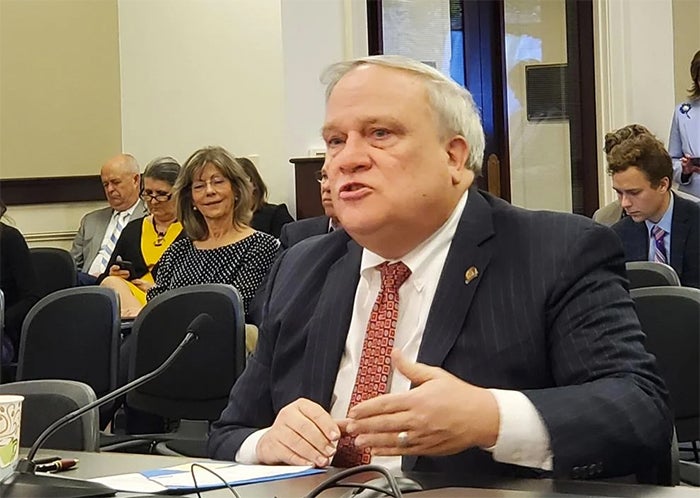FRANKFORT — Senate legislation that would establish an endowed fund for collaborative cutting-edge research efforts between Kentucky’s public universities cleared the House Appropriations and Revenue Committee Monday afternoon.
The research fund established by Senate Bill 1, sponsored by Senate President Robert Stivers, R-Manchester, would be administered by the Council on Postsecondary Education (CPE) and fund collaborative research among up to five consortiums, each of which would include at least two universities.
Stivers told the panel the Markey Cancer Center at the University of Kentucky, which received National Institutes of Health certification, is an example of what he envisions happening with more of the state’s public universities in more fields.
“Many groups have come to me saying, ‘Wow! This is an opportunity for us to do cutting edge research,’” he said. “I remember a few years ago when we did some funding for genomics sequencing. That is no longer state-of-the-art, even though four years ago it was. What once took three months to do genomic sequencing, now only takes 15 minutes on a supercomputer.”
Stivers wrapped up his remarks by saying, “This is something that would behoove the whole state, the Commonwealth. Each university, instead of being competitors as they should be on the athletic fields, would be collaborators, and we wouldn’t have to be sitting here every year trying to figure out who gets what. We would basically force them into cooperative types of ventures.”
SB 1 also requires the CPE to select the Kentucky Spinal Cord and Head Injury Research Trust as one of the initial five research consortiums no later than February 1, 2025. This trust will be subject to the same performance review required for all other research consortiums.
He noted that the funding amount for the measure will be determined by the House-Senate conference committee that is currently crafting the two-year budget for the state.
The bill passed the committee on a unanimous 20-0 vote, and now heads to the House floor. Since there was a House committee substitute adopted, the Senate would have to agree to those House changes before the bill would head to the governor.






